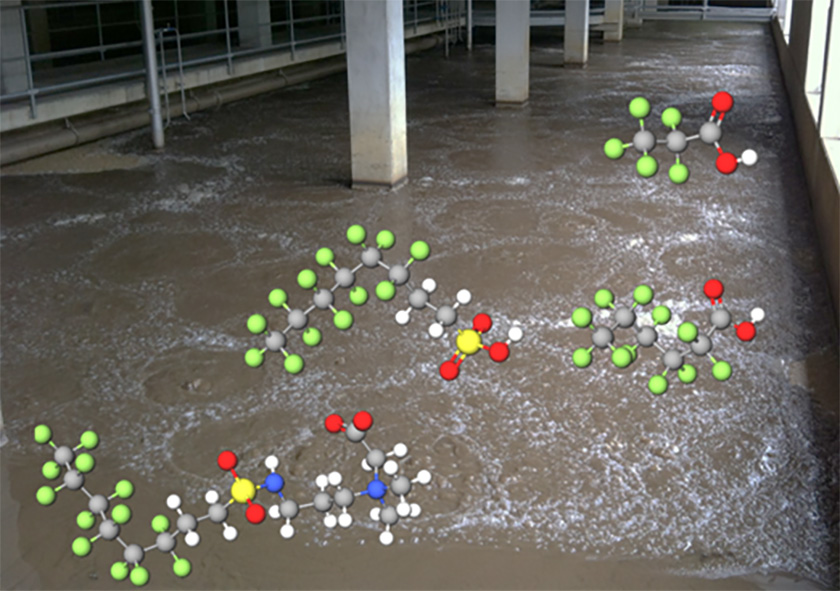Department Environmental Chemistry
Occurrence of PFASs in Swiss Wastewater Treatment Plants

Per- and polyfluoroalkyl substances (PFASs) are a wide-ranging group of persistent organic pollutants characterized by the presence of high strength carbon-fluorine bonds with widespread use in industry and consumer products. Some PFASs have the potential to bioaccumulate and many have demonstrated toxicological effects. Low PFAS threshold values have been set in the EU drinking water directive, and freshwater quality standards are under consideration. When PFASs enter the water cycle, they often remain stable and are unable to be removed by natural or conventional water treatment processes. Wastewater treatment plants are an important point source for PFASs into aquatic systems, and they provide a representative indication of the types and amounts of different PFASs sourced from industry and municipalities within a defined catchment.
The aims of the project are to determine the occurrence of PFASs in Swiss wastewater treatment plants and to compare the concentrations today to historical measurements from the previous decade. A wide range of target substances will be assessed, and additional suspect and non-target screening is envisaged. Samples from wastewater influent, effluent, and sewage sludge will be analyzed to gain an understanding of contaminant occurrence and fate throughout the wastewater treatment process. These results will aid efforts to identify important PFASs present in wastewater streams and their potential sources, and they will provide crucial data to guide national use and discharge limits.
